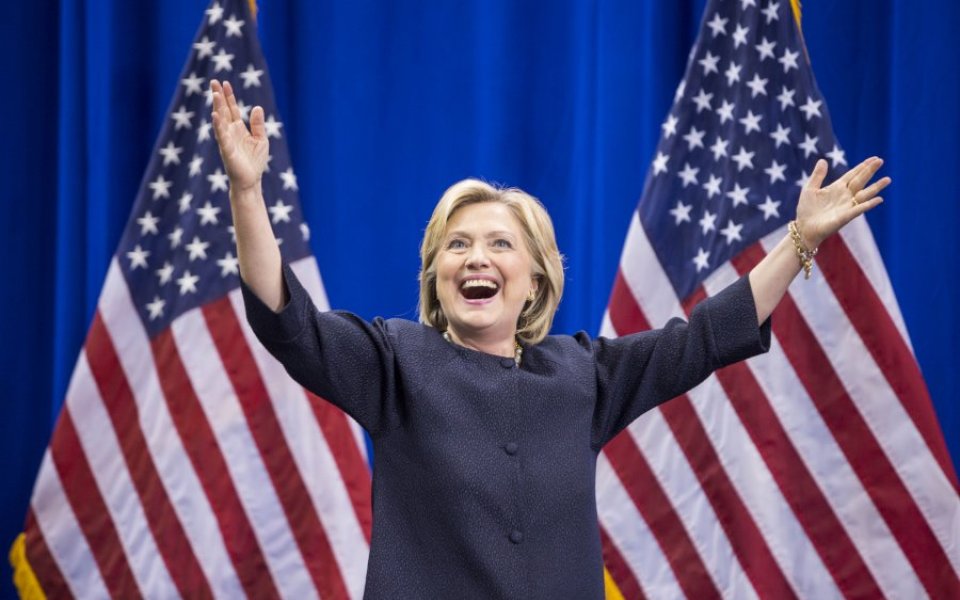The end of the West: 2016 is the year a new order begins to arise

“Now this is not the end. It is not even the beginning of the end. But it is, perhaps, the end of the beginning.” Churchill, after the British victory at El Alamein
This year will make it apparent to all but the most gormless that the comfortable, easy centuries of western dominance (under the Dutch, the British, and the Americans respectively) has definitively come to an end. From that now clear structural change a whole new world shakes out, one which will condition the global economy for the rest of our lives.
It is the end of the beginning, the moment when it becomes clear that we definitively live – and will do so for the foreseeable future – in a world of many powers, where power itself becomes increasingly diffused across the globe. Following on from this, four rather startling predictions are possible.
The Eurozone crisis is far from over, and Europe itself is in absolute, almost irretrievable, decline. The Portuguese and Spanish elections at the end of 2015 were a foretaste of the feast to come. Established parties across the continent are finally beginning to pay a political price, both for failing to avert the Great Recession in the first place, and then for the mindless austerity/profligacy debate which followed (spearheaded by the wildly overrated Angela Merkel), an argument which entirely missed the central point that it is only structural reform – most specifically labour market reform – that can save the moribund continent.
Instead, Europe will continue to be characterised by wretched demographic patterns (Germany is due to become the oldest advanced industrial country in the world over the next decade), non-existent growth, and entrenched youth unemployment settling at depression levels. In essence, due to elite mismanagement of the worst sort, a banking crisis has morphed into a continent-wide economic crisis, which has now become an existential political crisis. Political risk in Europe could not be greater.
It is well past time to entirely junk the Brics label, as emerging markets can only be mastered by analytical disaggregation. My cri de coeur over this point will finally be vindicated in 2016, as Goldman Sachs’s clever (if entirely incorrect) marketing of the Brics concept comes entirely undone. The five emerging market countries spearheading the notion (Brazil, Russia, India, China and South Africa), rather than marching to the beat of a common drum, are heading off, willy-nilly, in entirely different directions.
Brazil, due to President Dilma Rousseff’s incompetence, finds itself in an endemic economic and political crisis, which may culminate in her impeachment. South Africa, equally ill-led, faces economic stagnation. Russia, headed by everyone’s favourite Bond villain Vladimir Putin, remains an economic basket case wholly dependent on the still plummeting price of energy.
China, by contrast, is just about managing (despite its stock market hiccup of mid-2015) a relatively soft landing into the realm of 5 to 7 per cent growth. Booming India, in turn, will continue to outshine everyone else, with the possible enactment of a goods and services tax (which would finally make the sub-continent a single market) potentially the next “Big Bang” on the global economic scene. In other words, the five couldn’t be headed in more different directions; time to junk lazy one-size-fits-all analysis and actually go back to thinking individually about the major emerging powers in the world.
Donald Trump will elect Hillary Clinton the 45th President of the United States. It is not that the modern incarnation of the 1960s segregationist know-nothing George Wallace will even win the Republican nomination; he will not. But Trump’s vote – as was the case with Ross Perot in 1992 – will be the only one that matters in this year’s presidential election.
Either he will be a bad sport, petulantly storming out of the Republican Party with his followers (it does sound just like him), or Trump will so push the party’s narrative to the Attila the Hun right that independents and unaligned moderates (the people who actually determine presidential election outcomes) will be utterly alienated from the Republican brand. In either case, Clinton will waltz to victory. Then a transatlantic crisis is almost bound to ensue, as the far more activist Wilsonian Clinton administration (in contrast to the cautious realist Barack Obama) demands the practical support of America’s European allies across a range of issues, a demand an inward-looking continent will be loath to provide. The end of a unified West as we know it will be the likely result.
Finally, to be discussed in detail throughout the year, Britain will vote to leave the EU.
Happy New Year.